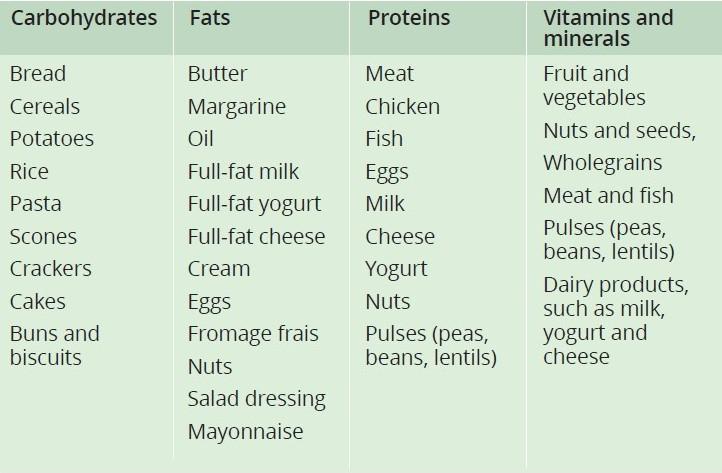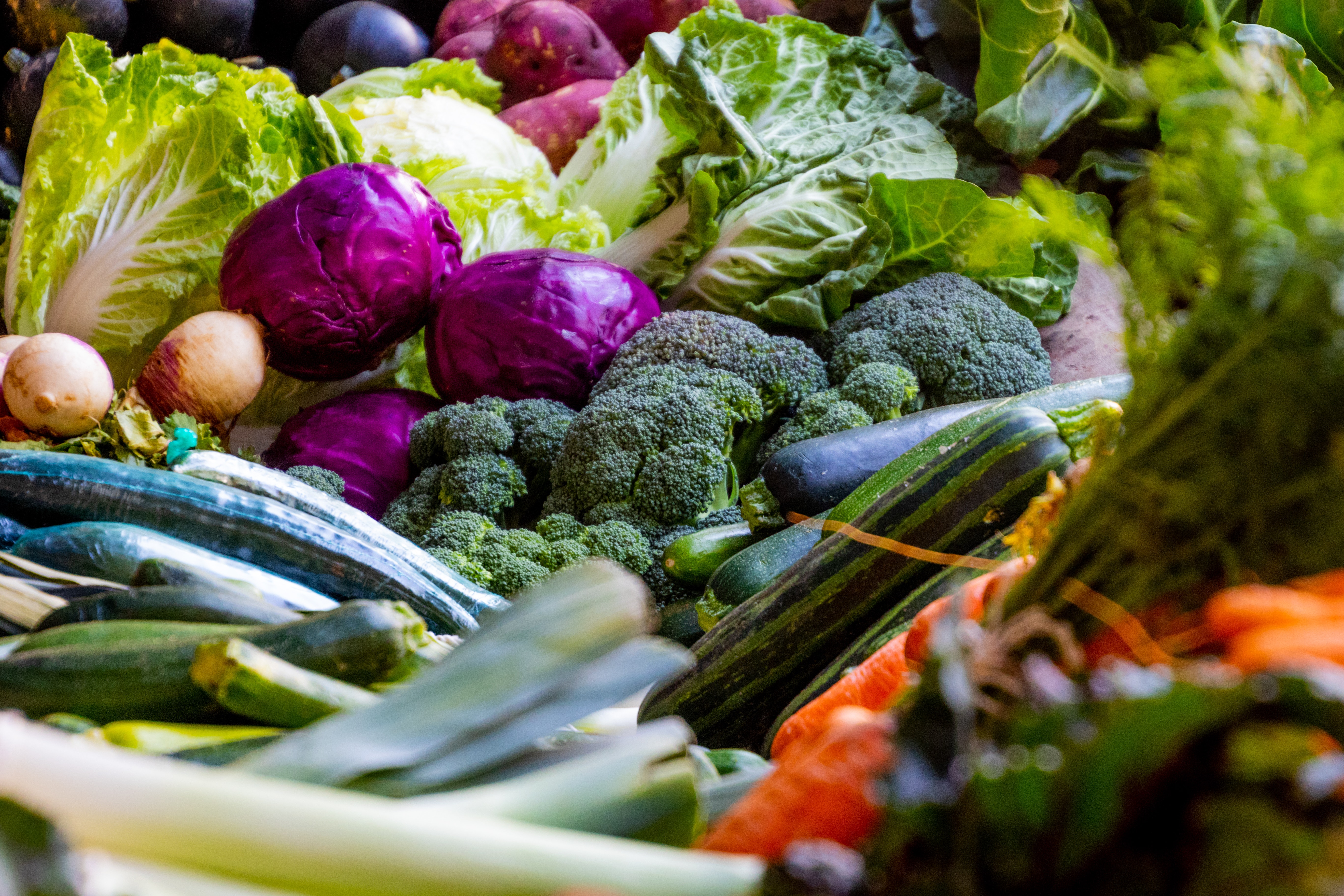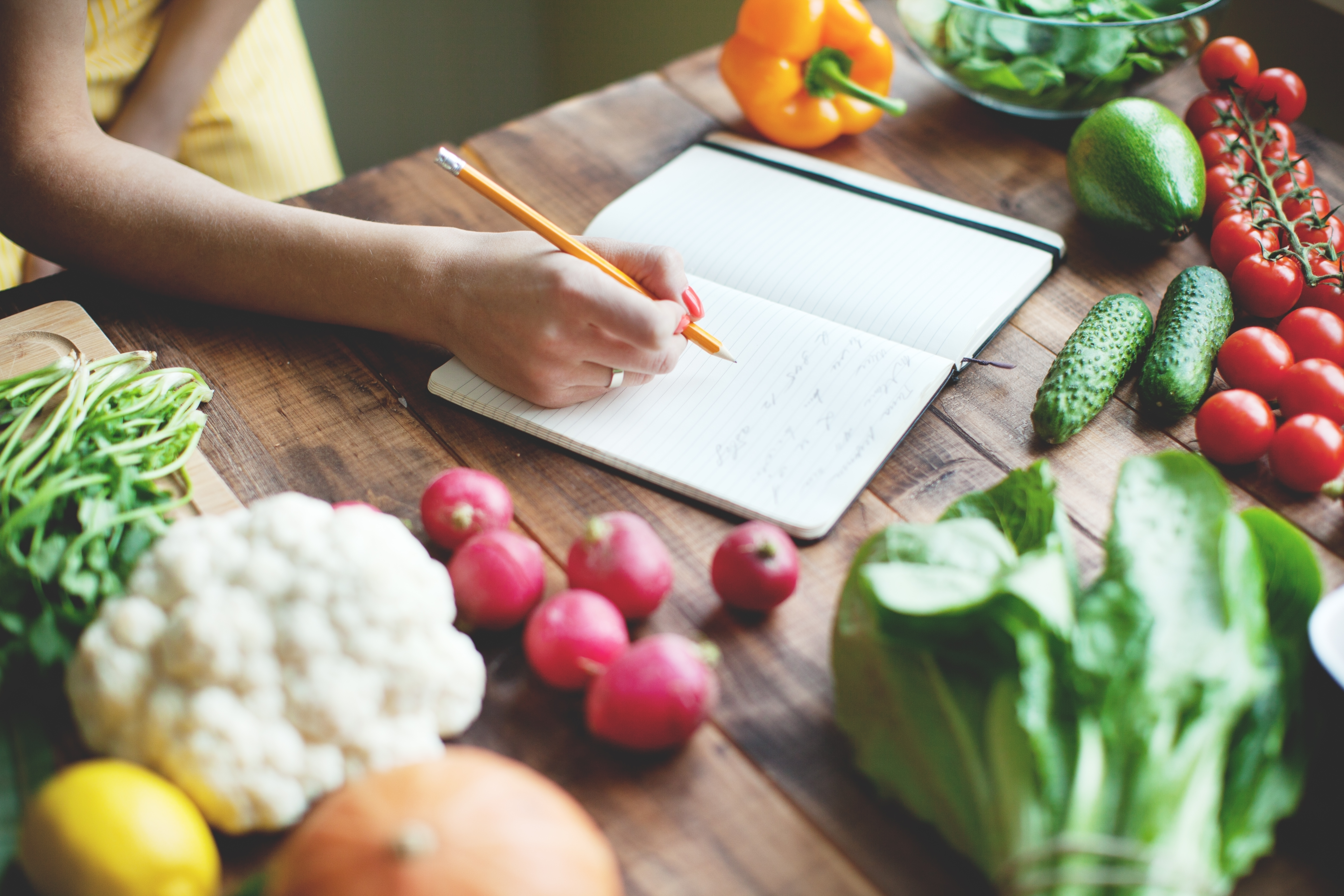A balanced diet
What is a balanced diet?
To have a balanced diet you need to eat a variety of foods that provide the correct amount of nutrients your body needs to grow and work well. Nutrients are used by your body to give you energy, repair and build essential tissues and to help with lots of body functions. They include:
- Protein to help your body to repair itself after illness or treatment and fight infection
- Carbohydrates for energy
- Fats
- Vitamins and minerals help your body use the foods you eat

The food pyramid
The food pyramid can help you to see how to balance your own diet, by getting the right amount of different types of foods. Cancer and cancer treatment can affect your body in different ways. You may need to eat different types of foods or different quantities. You might need special advice from a dietitian to keep a good balance in your diet. Ask to be referred to the dietitian if you have any worries about your diet.
How much of each type of food should I eat?
Foods and drinks high in fat, sugar and salt - there are no recommended servings for these foods because they are not needed for good health.
Serving sizes:
- Small or fun-sized servings of chocolate, biscuits, cakes, sweets, crisps and other savoury snacks and sugary drinks – not every day, maximum of once or twice a week
Meat, fish, poultry, beans, eggs, nuts - 2 servings a day
Serving sizes:
- 50-75g cooked lean beef, lamb, pork, mince or poultry (half size of palm of hand)
- 100g of cooked fish, soya or tofu
- ¾ cup of beans or lentils
- 2 eggs
- 40g unsalted nuts or seed
Milk, yoghurt and cheese - 3 servings a day (5 for children aged 9-12 and teenagers aged 13-18)
Serving sizes:
- 1 glass (200ml of milk)
- 1 carton (125g) yoghurt
- 2 thumbs (25g) of hard or semi-hard cheese such as cheddar or Edam
- 2 thumbs (25g) of soft cheese such as brie or camembert
Wholemeal cereals and bread, potatoes, pasta and rice – 3-5 servings a day (up to 7 for teenage boys and men aged 19-50)
Serving sizes:
- 2 thin slices of wholemeal bread
- 1½ slices wholemeal soda bread or 1 pitta pocket
- 1/3 cup dry porridge oats
- ½ cup unsweetened muesli
- 1 cup flaked type breakfast cereal
- 1 cup cooked rice, pasta, noodles or cous cous
- 2 medium or 4 small potatoes, 1 cup yam or plantain
Vegetables, salads and fruit – 5-7 servings per day
- 1 medium sized fruit – apple, orange, pear or banana
- 2 small fruits – plums, kiwis or mandarin oranges
- Small fruits – 6 strawberries, 10 grapes or 16 raspberries
- ½ cup of cooked vegetables - fresh or frozen
- 1 bowl salad – lettuce, tomato, cucumber
- 1 bowl homemade vegetable soup
- 150ml unsweetened fruit juice
Average daily calorie needs for all foods and drinks for adults
Women
Active 2000kcal / Inactive 1800kcal
Men
Active 2500kcal / Inactive 2000kcal

Getting active
Taking some exercise is one of the best things you can do to feel as well as possible. It can:
- Improve fatigue and other side-effects
- Increase your energy levels
- Help anxiety and depression
- Improve your mood and quality of life
- Help you to keep a healthy weight
- Strengthen your muscles, joints and bones
- Help with coordination, balance, stamina
- Reduce the risk of other health issues
Talk to your doctor about becoming more physically active. They can tell you what is safe and suitable for you and may be able to recommend a special exercise programme for people who have had cancer treatment.
Body mass index (BMI)
BMI is a number that tells you if your weight is right for your height. BMI is graded so it can tell if you are underweight, a healthy weight, overweight or obese (fat).
| Underweight | Healthy Weight | Overweight | Obese |
|---|---|---|---|
| 18.5 or less | 18.5-24.9 | 25.0-29.9 | 30 or more |
Your dietitian can measure your BMI. Sometimes there are scales in shopping centres or pharmacies that will measure it for you.
BMI is a guide only. Most people are advised to keep their current body weight during cancer treatment. If you are worried about your BMI score, talk to your dietitian. If you are losing or gaining weight, discuss it with your nurse, doctor or dietitian.
Measuring BMI yourself
You can also calculate your BMI yourself. But first you will need to know your weight in kilograms (kg) and your height in metres (m). Divide your weight by your height and then divide the result again by your height. There are also websites that can help you to calculate it.
For more information
Phone
1800 200 700



